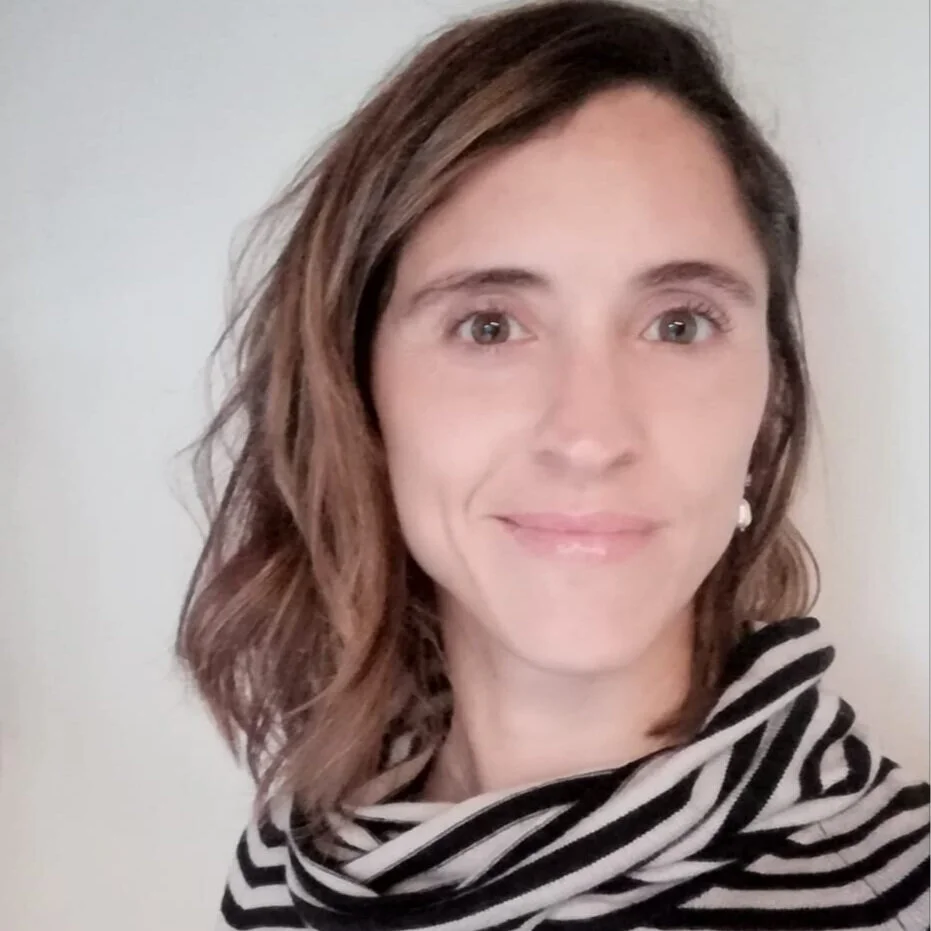
Fellows 2021-2022
Dolores
Álvarez-Garriga
This project investigates the meanings of Simple Past and Present Perfect in the so- called Rioplatense Spanish of Argentina. In previous studies we have shown that there are sensitive differences in the use of Simple Past and Present Perfect in different speaking communities of Argentina. Nevertheless, the results prove that all the uses are consistent with the hypothesized meanings: CLOSED/OPEN TO THE SPEAKING SPHERE, respectively.
Gabriela Bravo de Laguna
Es profesora en Letras y magister en Linguística, egresada de la Facultad de Humanidades y Ciencias de la Educación, de la UNLP. Alumna del Doctorado en Letras de la misma Unidad Académica. Es Jefa de Trabajos Prácticos de la cátedra de Lingüística del Profesorado en Letras y profesora de las asignaturas Sociolingüística y Gramática y Lingüística IV, del Profesorado en Lengua y Literatura. Integra los equipos de Investigación dirigidos por la Dra.
Kelli Hesseltine
Kelli Hesseltine, a CSLS research fellow since 2016. Kelli’s previous linguistic research, conducted with her mentor Joseph Davis, involves an examination of the order of words traditionally classified as nouns and adjectives. Over the course of three years, Hesseltine and Davis developed and gathered data for the Assertion of Characterization hypothesis, exploring two different meanings - WEAKER (signaled by the order AB, with a preposed adjective), and STRONGER (BA, postposed) - with which language users communicate an assertion of an entity’s characterizing traits. In 2020, their work, “The communicative function of adjective-noun order in English,” was published in the academic linguistic journal WORD and there they identified several issues for future consideration, one of which is Hesseltine’s research focus for this year’s fellowship.
Eduardo Ho-Fernández
Building on previous Society-sponsored research, this project investigates a complex set of word order facts in Spanish involving event words and words inferred to be participants in those events. The hypothesis is that position before the event (PEP) signals HIGHER, and position after the event (PEP) signals LOWER, Participant Attentionworthiness.
Andrew McCormick
The focus of this dissertation is the form how. The goal is to account for the distribution of how, a monosemous form with a single invariant meaning will be proposed. This claim presents a challenge to traditional analyses, which have posited at least three categories for the form: manner adverb (‘how to make lasagna’), intensifier (‘how far/how many’) and complementizer (this role is applied to situations where how is believed to be interpreted as an informal version of ‘that,’ as in, ‘He said how nobody likes the new policy’).
Max Miller
This project will study the two forms that indicate PAST Time in English—PAST (e.g. chose) and PAST, BEFORE (had chosen)—and their relative meanings. In traditional grammar, there has been an assumption that the PAST, BEFORE is used to narratively link two events in time, placing one before or after another. However, the PAST has been seen to perform the same function (Vonnegut 1973). The Columbia School has shown that a difference in signals reliably indicates a distinction in meaning.
Ludmila Novotny
Ludmila Novotny is a Certified English-Spanish Translator based in the City of Buenos Aires, Argentina. She holds a degree in Literary and Technical-Scientific Translation from the Instituto de Enseñanza Superior en Lenguas Vivas “Juan Ramón Fernández” and a degree in Legal Translation from the Pontificia Universidad Católica Argentina. She is currently pursuing a Master’s Degree in Linguistics at the Universidad Nacional de La Plata, while also working as a field researcher and research assistant for a project at the Albert-Ludwigs-Universität Freiburg (Germany).
Roxana Risco
The semantic contribution of A in Spanish: a signal-meaning hypothesis. This project builds on a previous Society-sponsored research. The analytical problem undertaken concerns the distribution of the form A in Spanish (traditionally known as prepositional-A and personal-A). This study relies on the explanation for its use in terms of a meaning hypothesis (Diver 2012; Huffman 1997): a single invariant semantic value functioning as a communicative tool that simply contributes to the communication of many different types of messages or message partials rather than encoded messages.
Daan van Soeren
Daan van Soeren, CSLS research fellow since 2018, is a student of Bob de Jonge, who in turn was a student of Erica García, co-founder of what is now known as Columbia School linguistic thought. His dissertation project is carried out within the framework of Columbia School Phonology, more commonly known as Phonology as Human Behaviour (PHB; Diver 2012), which argues that the phonology of languages is shaped the balance between maximum communication and minimal effort.
Albert Ventayol-Boada
In this research fellowship Albert analyzes the so-called ‘grammatical focus’ in Kolyma Yukaghir (Yukaghiric; Russia) vis-à-vis the nominal case system and the verbal paradigms in the language. While current descriptions have listed the different forms linked to ‘focused’ and ‘non-focused’ morphology, the functions associated with each sign are less clear and do not specify in what social and pragmatic contexts speakers may choose to use them. This research is part of his doctoral dissertation on the morphosyntax of the two extant Yukaghiric languages using corpus methods, and psycholinguistic experiments in the field.










